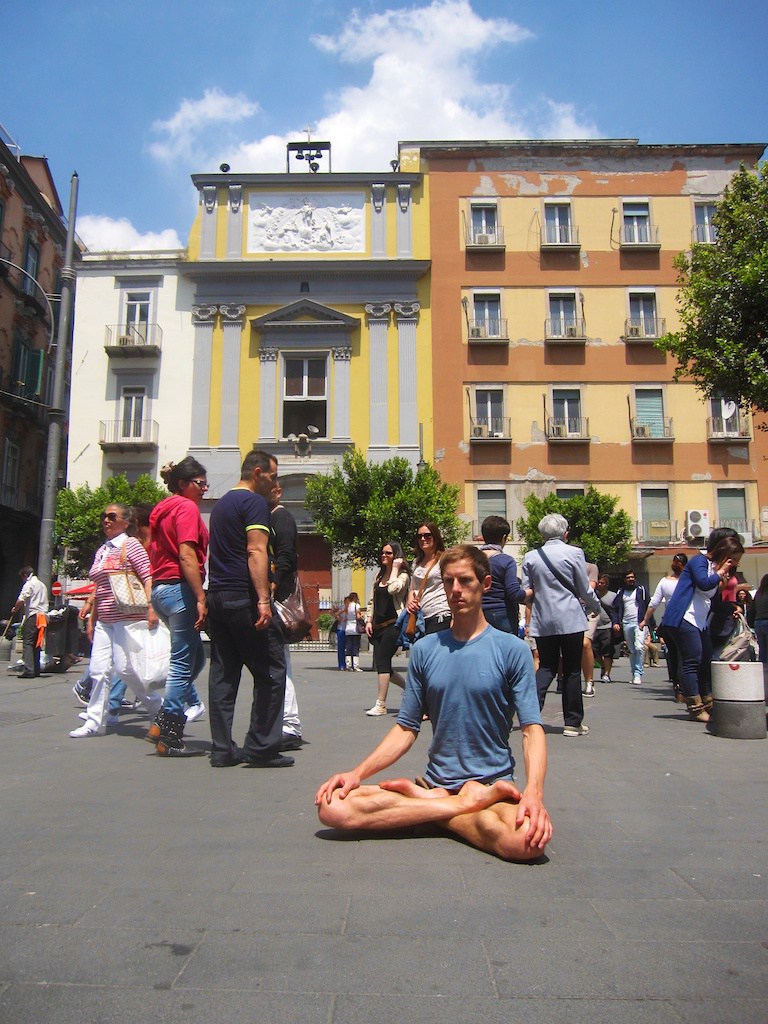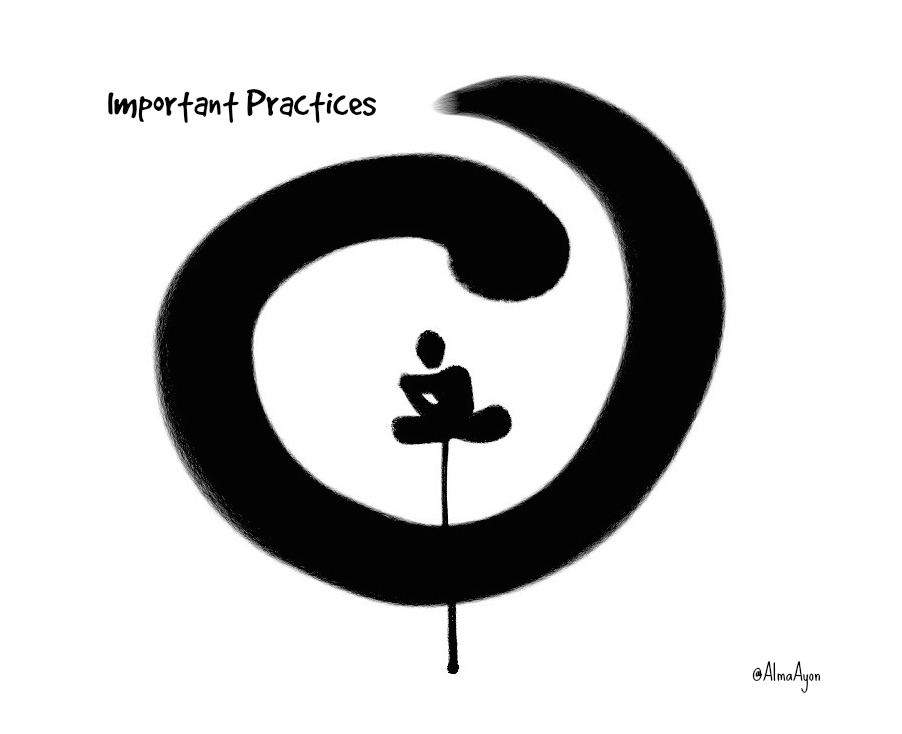by Alma Ayon | Feb 18, 2019 | blog, emotions, meditations
In the context of the Shamatha practice of Settling the Mind if any emotion, for example, anger arises during a meditation session you can become aware of its arising but it's different than watching a thought, it's more like your whole experience is suddenly tainted by the emotion, if you then sit still and watch it, you can also become aware of its dissolution.
In the context of the practices of the Applications of Mindfulness and Vipashyana, you can apply inquiry and ask, where is anger located? Where do I feel it, in my belly, in my head, etc? Does it has color, shape, etc? And investigate. By doing this you can gain insight into its empty nature. Also by directing your attention to the emotion instead of the referent which are the thoughts that feed it, in other words, by not following the thoughts that give rise to anger, then the emotion will start dissolving.
When practicing in the context of Ethical Conduct while engaged in activities an interactions with other people, there are several antidotes that can be applied such as not talking, taking space, practicing patience, etc., there are many suggestions from Santideva and other great masters.
When practicing in the context of Dzogchen, you recognize anger as a manifestation of mirrorlike wisdom of primordial consciousness and it self liberates.
The important thing is to practice something, sometimes you will be able to see it arise and without any grasping it will be self-liberated, other times you will be completely dominated but you will still have time to apply an antidote and avoiding letting it transform into hurtful words and actions.
On other occasions you will find yourself regretting what you did or said, but you will still be able to apply a practice of purification.
As the Masters say, using the analogy of a forest catching fire, if you see a sparkle you might be able to stop it by quickly stepping on it, but if the fire is spreading in the forest, you will need to apply stronger measures.
That's why it's so important to train in the cushion and be aware of our mental state at all times in between sessions.
by Alma Ayon | Aug 9, 2017 | emotions, reflections
When we are depressed, we perceive everything in a negative way, we feel defeated, without the intention of undertaking any activity, we do not see sense in striving to achieve something, we feel unmotivated.
On the one hand we can reflect that there is a certain wisdom in those moments, that of knowing that no matter how hard we try to get satisfactory stimuli, fame, money, power, knowledge, etc., none of these things will bring us lasting happiness, since everything we accumulate we will lose over time, besides striving is not a guarantee that we will succeed, surely we will have failures and disappointments, then why even make effort to get out of bed, and undertake new activities?
All these thoughts combined with the thoughts that arise from the losses and failures that we have already had in the past, and the present thoughts about what we lack, what we want to be and aren't, etc., can cause sadness, disappointment and frustration to arise.
We all want to feel happy without having to make a tremendous effort to get, fight, acquire, protect, pretend, etc., and we can do it if we just stop doing what has us trapped in depression: believing our thoughts, feeding them , and obsessively review them until they generate destructive emotions.
The only thing we have to do is to stop struggling with that inner dialogue that tells us what we should be, do, or constantly judge us for not being good enough, successful, intelligent and so on. Stop listening, ignore it and let our minds rest in the stillness of being aware here and now.
At first that voice will intensify by wanting to be heard, only thoughts that arise out of habit, but as we ignore them these will become less frequent.
Instead of paying attention to them, we direct our mind to the sounds that surround us or to our breathing. Whatever is happening in the present, here and now, is an anchor for our mind to rest.
Stop identifying with depression and the thoughts that produce it, is the way to find peace of mind.
Sometimes it is very difficult not to let ourselves be carried away by thoughts and emotions, so a useful method is to focus our attention on the beneficial things and actions that other people are carrying out in the world, and to rejoice in the help they are giving to other humans or animals. Feeling empathy for others makes us feel good. Let's try to focus on helping those around us.
by Alma Ayon | Feb 15, 2016 | emotions, meditations
When you feel rejected, assaulted, alone, depressed, angry; you are creating separation from the world, you disagree with it, you are judging it. The best thing to do is accept this moment and be fully aware of the emotion you're experiencing, without rejecting it, but without feeding it with more thoughts, watching the thoughts that arise involuntarily and let them pass, stay present and rest on the awareness of being aware, of being alive, of being experiencing. Let your mind be as motionless sky and let your thoughts and emotions arise and pass like clouds. Do not fight, do not reject the experience, do not act. Stand still watching your mind, go for a walk alone and coordinate your steps with your breath while you attend to emotions and sensations in your body.
Do not analyze the triggers of your emotion until it has diminished or gone altogether.
by Alma Ayon | Jan 10, 2016 | emotions, reflections, wisdom
We all seek genuine happiness, but appearances are deceiving and we end up searching where it's not. Some of us believe that if only we had more money, health, a family, children, power, fame, sensual pleasures, etc., we would be happier. But we don't realize that all these things are impermanent and lack the ability to give us lasting happiness. The only thing that can give us that happiness is training our mind to:
1. Live an ethical life that benefit those around us.
2. Develop mental calm, presence and single-pointed attention.
3. The cultivation of emotional balance and the development of deep wisdom.

Photo: ©AlmaAyon
Therefore, it is important to be aware of what motivates our actions. To the extent that our motivations focus on ourselves and are selfish, the result will be our suffering, why? If we analyze this, we realize that when we want something for us, we get attached to it and begin to defend ourselves, to compete with others to get it, and once we have it we are afraid that it will be taken or lost, so we take a defensive attitude.
To the extent that our mind attaches to ideas, desires, things, people, situations, etc., and as you feel aversion for all that stand between its desires and their objects, the result will be mental afflictions such as anger, jealousy, selfishness, etc, and an afflicted mind is an unsatisfied unhappy mind.
The Mind is the Source of Happiness
To the extent that we desire fewer things and appreciate what we have, and as we release the attachment and aversion, and dedicate ourselves to cultivate a peaceful mind and emotional balance, to that extent we will find true happiness that doesn't depend on external stimuli or objects, situations, praise or recognition.
And how do we achieve this? Training our mind gradually. To begin, take a tour of this site, explore and put into practice all the tips, advice and strategies I have shared in previous posts. Also sign up to receive tips and resources on your email.
Your Turn
Do you have any examples that have given you certainty that the mind creates our experience?


